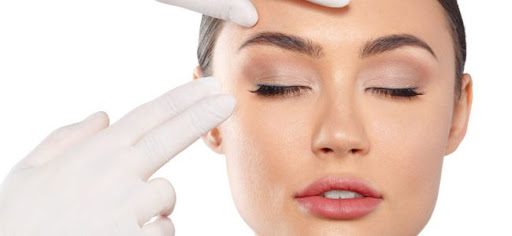Botox and Headaches: What You Need to Know
Are you experiencing headaches after your Botox treatment? You're not alone, as this is a recognized side effect in some patients. In this article, we'll unravel the connection between Botox and headaches without the medical jargon.
Let's lay your worries to rest by diving into the facts about Botox-related head pain.
Key Takeaways
- Botox can cause headaches as a potential side effect, including migraine-like headaches.
- Over - contraction of forehead muscles and poor injection technique can contribute to these headaches.
- Headaches after Botox treatment usually resolve within a few hours to a few days.
- Over-the-counter migraine drugs and cold compresses can help manage the pain.
How Botox Works for Pain and Aesthetics
Botox is a drug doctors use to help ease certain health problems. It comes from the bacteria called clostridium botulinum. This bacteria can harm you, but in Botox, it's safe.
Doctors inject small amounts of Botox into your muscles. They do this with tiny needles. This may sound scary, but it isn’t too painful.
The shot tells your muscle to stop working for a while. The muscle rest helps smooth out wrinkles on your face and neck. It leaves you with a more youthful look.
But that's not all Botox does! Doctors also use it for other things like sweat control or pain relief. Some people even get Botox injections to treat chronic migraine pain.
So, how does botox work? When injected, the Botulinum toxin blocks signals from nerves so they can't reach your muscles anymore! By doing this, it causes weakness or paralysis of these muscles until they recover naturally over time.
Can Botox Trigger Headaches?
Botox can potentially cause headaches, including migraine-like headaches, due to over-contraction of forehead muscles and side effects that may occur within 24 hours of treatment.
Over-contraction of forehead muscles
Botox can make forehead muscles work less. But, too much Botox can cause these muscles to tighten too much. This is called over-contraction. It can lead to pain in your head or a headache.
These headaches are not the same as normal ones and do not feel good.
The place where you get Botox also matters. If it goes into the wrong muscle, this might stress other muscles out more. These stressed-out muscles may then contract or tighten up a lot more than they should, causing headaches again.
Potential side effect within 24 hours of treatment
After getting a Botox injection, you may feel a headache. This is normal and can happen within 24 hours of the treatment. It's a side effect, but it does not last long. Some patients have mild pain after Botox.
Others might have more discomfort or headaches if they get injections again and again. The doctor who gives the injections should know what they are doing because bad technique can cause headaches too.
Most people who get these headaches feel better in a few hours to a few days. Each person is different though, so how long your headache lasts could change based on you.
Migraine-like headaches
Botox injections can sometimes cause migraine-like headaches as a side effect. This can happen due to the over-contraction of forehead muscles after the treatment. In some cases, patients may experience mild headaches within 24 hours of getting Botox injections.
It is important to note that while Botox can help relieve headaches when injected in certain areas, it can also trigger headaches for some individuals. The duration of these headache symptoms may vary from person to person, lasting anywhere from a few hours to a few days.
Treating Headaches After Botox
To treat headaches after Botox, over-the-counter migraine drugs can help manage the pain as the drug metabolizes. But there are other side effects you should be aware of too. Read more to find out how to treat and manage headaches after getting Botox injections.
Over-the-counter migraine drugs
There are over-the-counter drugs available that can help relieve headaches after receiving Botox injections. These medications, such as ibuprofen or acetaminophen, can be taken to alleviate any pain or discomfort caused by the headache. It's important to follow the recommended dosage instructions on the medication packaging and consult with a healthcare professional if you have any concerns or questions about using these medications.
Additionally, applying a cold compress to your forehead or temples may provide some relief from the headache symptoms. Remember to consult with your healthcare provider for personalized advice and guidance on managing headaches after Botox treatments.
Managing headaches as the drug metabolizes
As the effects of Botox wear off and the drug metabolizes in your body, you may experience headaches. While these headaches are usually mild and temporary, there are some things you can do to manage them.
It's important to stay hydrated by drinking plenty of water throughout the day. Applying a cold compress or ice pack to your forehead can also help alleviate headache pain. If needed, over-the-counter pain relievers like acetaminophen or ibuprofen can provide relief.
Remember to follow the recommended dosage guidelines and consult with your healthcare provider if you have any concerns or if the headaches persist.
Seek expert help for persistent pain
If over-the-counter solutions and home remedies don't provide sufficient relief, it might be time to seek specialized care. At Spine Team Pain Center, professionals are trained to alleviate persistent pain, ensuring you get back to feeling your best. Don't let post-Botox headaches hinder your daily life – reach out to a professional who knows how to help.
Botox Side Effects: What’s Normal?
Botox can also cause other side effects, such as botulism poisoning and cosmetic complications. To learn more about these potential risks and how to manage them, continue reading.
Botulism poisoning
Botulism poisoning is a rare but serious side effect of Botox injections. It can occur when the botulinum toxin spreads beyond the injection site and affects other parts of the body.
Symptoms may include muscle weakness, difficulty speaking or swallowing, and trouble breathing. If you experience any of these symptoms after receiving Botox treatment, it's important to seek immediate medical attention.
However, it's worth noting that botulism poisoning is very uncommon when Botox is used for cosmetic purposes under the supervision of an experienced doctor.
Cosmetic complications
Botox injections can sometimes lead to cosmetic complications. While these complications are rare, it's important to be aware of them. One possible complication is droopy eyelids, which can occur if the Botox spreads beyond the intended injection site.
Another potential issue is asymmetry, where one side of your face may appear different from the other after treatment. These complications usually resolve on their own as the effects of Botox wear off, but it's still important to consult with an experienced doctor who can minimize these risks and ensure a safe and successful treatment.
When to See a Doctor for Botox Reactions
If you are facing any of the side effects, and they are seeming to worsen instead of going away. It would be better to get advice from a medical professional. While some of the side effects are rare, it is better to talk to your doctor. With the right approach, they can help you with the side effects, even setting you up on the right path to healing and eliminating your discomfort. Check the symptoms of botulism poisoning, like muscle weakness, difficulty speaking or swallowing, and trouble breathing. Also, watch out for cosmetic complications.
Key Takeaways on Botox and Headache Relief
Botox injections can indeed cause headaches as a potential side effect. This can happen due to over-contraction of forehead muscles or poor injection technique by an inexperienced doctor.
While Botox is known to relieve headaches in some cases, it can also trigger them in others. It's important for patients to be aware of this possible side effect and discuss any concerns with their healthcare provider before undergoing treatment.
Botox injections can indeed lead to headaches as a potential side effect. This phenomenon can occur due to the over-contraction of forehead muscles or an inaccurate injection technique by an inexperienced doctor.
While Botox is celebrated for relieving headaches in some individuals, it can, paradoxically, instigate them in others. Thus, it becomes imperative for patients to recognize this possible repercussion and deliberate any looming apprehensions with their healthcare provider prior to embarking on treatment.
If you have further questions or need more information about Botox and its potential side effects, we're here to help. Contact us today and ensure you're making an informed decision about your health.
Pre-Botox Preparation and Aftercare Tips
- Vigorous exercise, such as going to the gym or jogging.
- Washing your hair. It's advisable to wash your hair the day before your Botox appointment.
- Cleansing the skin in the areas where the Botox was injected.




